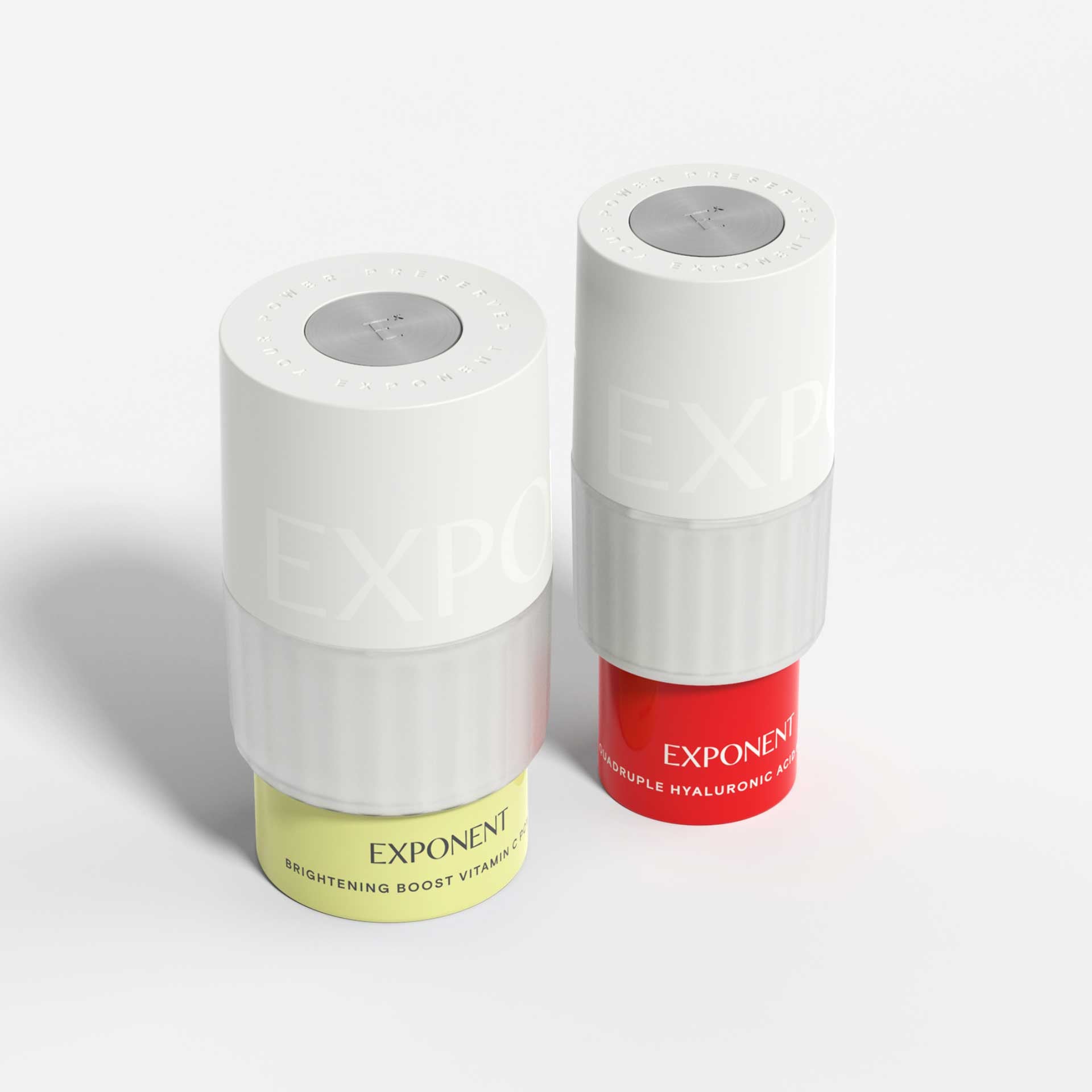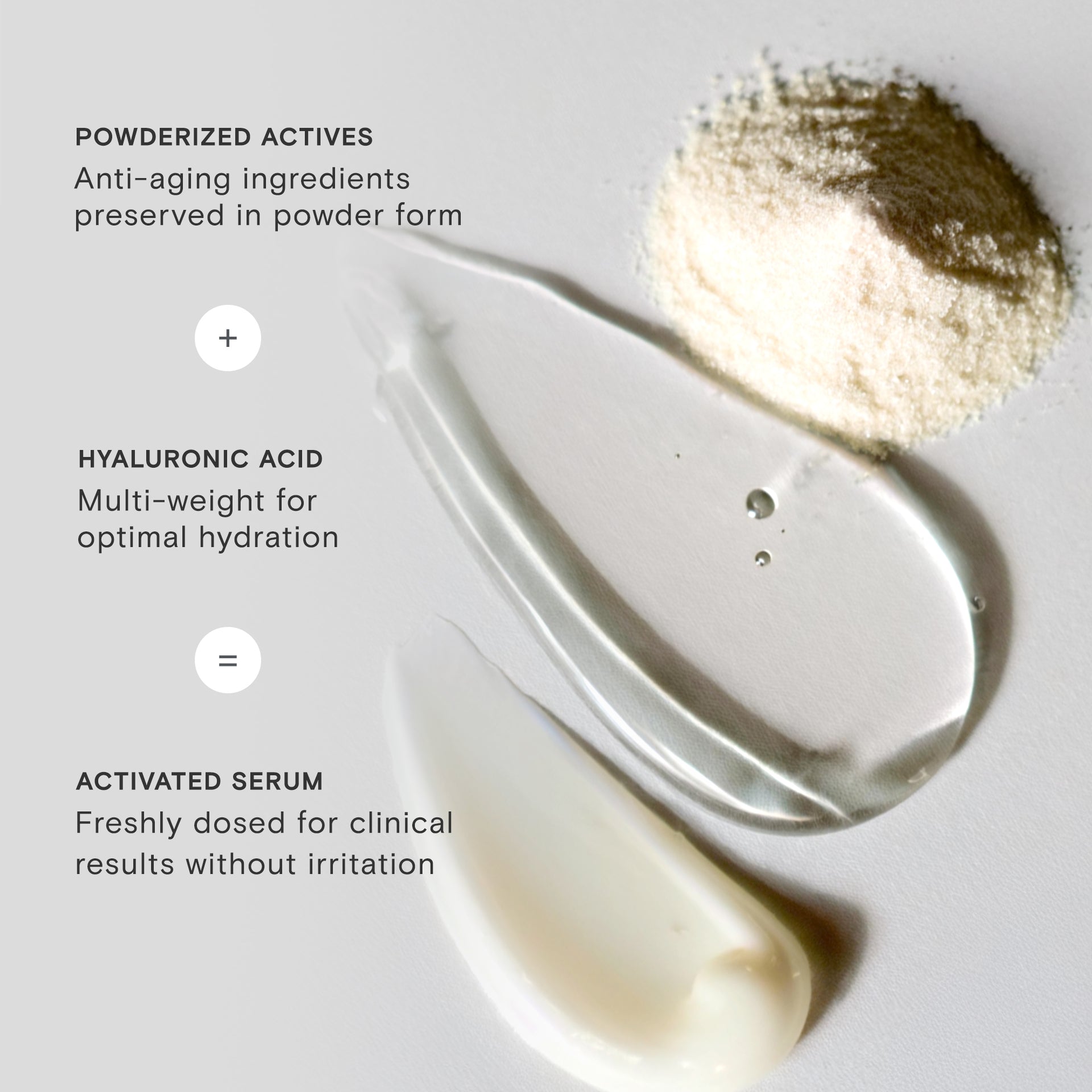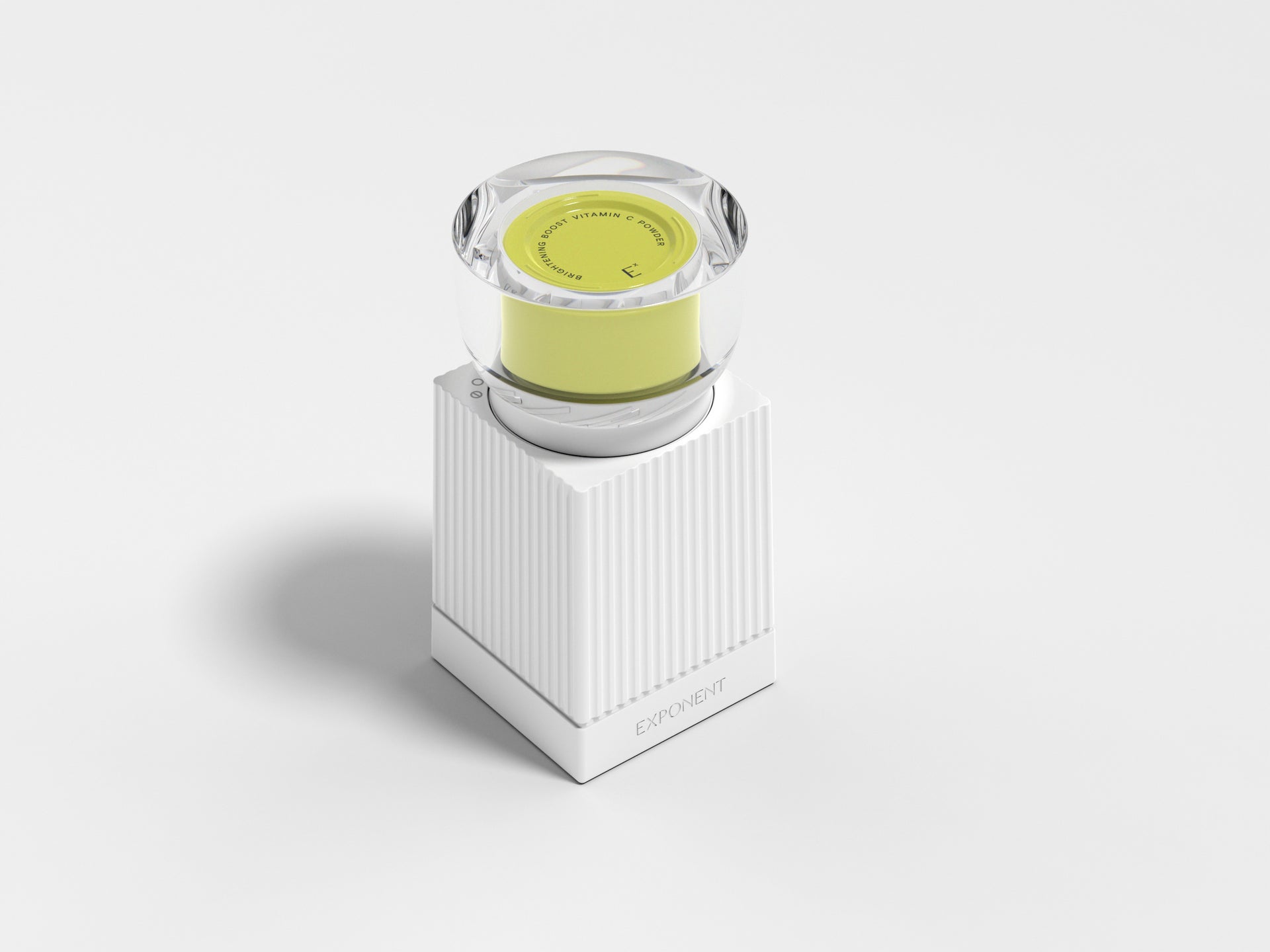'Tis the season your skincare routine needs an overhaul to help fight the telltale signs of a cold-weather complexion. Due to the plummeting temperatures and low humidity levels, skin's hydration depletes, leaving you with a parched face, a weakened barrier, more visible fine lines and wrinkles, and a dull look. This is why transitioning your skincare regimen from summer to winter is essential to face the frigid temperatures and prevent them from damaging your skin. In this post, we'll walk you through the best ways to build the perfect winter skincare routine so that you'll maintain a healthy complexion all year round.
How to Transition Your Skin Care from Summer to Winter
While skincare for summer calls for lightweight formulas and leveled-up SPF, the winter skincare routine is all about deep hydration, high replenishment, and repairing. Wind and frosty air, hot baths, low humidity levels, and the transition from cold to overly dry recirculated air from indoor heating all have a role in sensitizing and inflaming your skin. All of these lead to impaired barrier function, exacerbating transepidermal water loss (TEWL) and causing skin dehydration, which is a host for a plethora of issues, including dullness, flaky skin, more noticeable wrinkles, and a lackluster appearance.[1][2]
So now that chilly temperatures are around the corner, your skincare arsenal should mainly include skin-fortifying ingredients that strengthen the skin, support moisture, and prevent hydration loss. To prevent winter from wreaking havoc on your complexion, we suggest you switch up a few products in your skincare routine to adapt to the new season. Here are our tips:
Switch Up Your Cleanser
The cleanser doesn't sit on your skin too much, yet picking an unsuitable one can have some downsides. During the summer, a foamy or exfoliating cleanser will do, but in the winter, you should instead opt for a gentle one that dissolves makeup and impurities without stripping the skin of essential moisture.
Thus, you should start off your winter routine with a face wash loaded with moisturizing ingredients, such as hyaluronic acid, asiaticoside, and squalane, in the form of cleansing balms or oil-based cleansers and void of sulfates and fragrances as they dry the skin out. Make sure to wash your face with lukewarm water.
Exfoliation is Key During Winter Months
Contrary to popular belief, skipping exfoliation in the winter is not a good idea. The skin is prone to dehydration during freezing weather, so the cells die faster and you'll want to buff them away before they build up and hinder product absorption. Just be sure to stay away from scrubs as their abrasive nature is more likely to damage your skin. Instead, pick chemical exfoliants — alpha-hydroxy acids if your skin is normal or dry and beta-hydroxy acids for combination, oily, or breakout-prone skin.
Remember to Use Toner
Toner acts as a second line of cleansing and defense because it removes the residue your cleanser did not wash away, adds benefits, and allows your skin to drink in more moisture when applied before your serum and moisturizer. When the temperatures dip, choose a pH-balancing toner that aids in supporting moisture and the protective barrier. Be mindful of astringent toners or those that contain alcohol because they're likely to make your skin tight and uncomfortable. Instead, look for toners with green tea, hyaluronic acid, and niacinamide.
Use a Moisturizing Serum to Deliver Active Ingredients
Serums are the MVP of any robust skincare strategy because they deliver actives right into the skin. During the cold season, the level of natural ceramides — which play the role of structuring the skin and preventing water evaporation — depletes, find a serum that works to replenish ceramides.[3] Vitamin C is known to help regulate the production of ceramides in the skin, so a serum that contains this holy grail ingredient should be top of mind as well.[4] Plus, vitamin C is excellent at spurring collagen growth, resulting in more resilient skin. All whilst due to its antioxidant activity, it scavenges free radicals, preventing them from further bothering your complexion. Our Brightening Boost Vitamin C Serum is loaded with 10% pure vitamin C, and unlike traditional serums, it's made fresh for peak potency from every dose.
Combat Dehydration with a High-Quality Moisturizer
With the fast and forward TEWL in the winter, we recommend you swap your light moisturizer for an oil-based one, an emollient, or an ointment. "These vehicles help to strengthen the skin barrier to lock in moisture and hydration and prevent transepidermal water loss," Dr. Corey L. Hartman, board-certified dermatologist and founder of Skin Wellness Dermatology in Birmingham, Alabama, affirms.[5] In order to prevent skin dehydration in winter, use a rich moisturizer that packs significant amounts of ceramides, peptides, shea butter, squalane, cholesterol, or fatty acids.
Don't Forget Your Lips!
Your lips require some extra TLC during winter because the delicate, thin skin gets easily dehydrated. Apply an ointment-based lip balm that contains glycerin, butter, or essential oil during the day, while at night, you can try an intensely hydrating lip mask to keep them soft and prevent peeling.
Wear SPF Year-Round
It's not just anecdotally that you often hear you should wear sunscreen in the winter, too, the facts back it up. Even if the sun's rays are not as intense in the winter, they still pass through the clouds, and the risk of damaging your skin is pretty high. Snow is also highly reflective of UV rays, heightening the chance of sunburn and collagen breakdown.[6] During the summer, a water-resistant formula does best, while in the cold season, you can pick a sunscreen that nourishes, moisturizes, and primes.
Skin Care Transitioning FAQs
Is acne worse in summer or winter?
Acne usually worsens in the winter due to the excessive skin drying that triggers the sebaceous glands to produce more sebum. Also, the intense UV rays in the summer can zap acne-causing bacteria, thus temporarily clearing a breakout.
Should I change my skincare routine in the winter?
It's necessary to adjust your skincare routine during winter because the cold weather can cause dehydration, flakiness, and increased skin sensitivity.
Should you change your moisturizer in the winter?
To bypass water loss, you should swap your lightweight moisturizer in the winter for a richer, more emollient one that also contains occlusives to hinder water evaporation.
Is winter or summer better for skin?
Both seasons have challenges, so it's important to take care of your skin differently during each season and adapt your routine accordingly.
Caring For Your Skin Year-Round
With exacerbated dehydration during the cold season, you want to step up hydration and load on all the protection and nourishment you can get. Our Brightening Vitamin C Serum delivers just that and then some more due to shea butter and orange peel oil, both moisture sealers and skin softeners that are good to have in your winter skincare routine (and summer, too!). Pairing it with our Quadruple Hyaluronic Acid Hydrator, is a one-way ticket to hydrated, resilient skin all winter long.
Footnotes
- Kikuchi, Katsuko & Kobayashi, Hiromi & Le Fur, Isabelle & Tschachler, Erwin & Tagami, Hachiro. (2002). The Winter Season Affects More Severely the Facial Skin than the Forearm Skin: Comparative Biophysical Studies Conducted in the Same Japanese Females in Later Summer and Winter. Exogenous Dermatology. 1. 32-38. 10.1159/000047989, Source
- Engebretsen KA, Johansen JD, Kezic S, Linneberg A, Thyssen JP. The effect of environmental humidity and temperature on skin barrier function and dermatitis. J Eur Acad Dermatol Venereol. 2016 Feb, Source
- Rogers J, Harding C, Mayo A, Banks J, Rawlings A. Stratum corneum lipids: the effect of ageing and the seasons. Arch Dermatol Res. 1996 Nov;288(12):765-70. doi: 10.1007/BF02505294, Source
- Maria Ponec, Arij Weerheim, Johanna Kempenaar, Aat Mulder, Geert S. Gooris, Joke Bouwstra, A. Mieke Mommaas, The Formation of Competent Barrier Lipids in Reconstructed Human Epidermis Requires the Presence of Vitamin C, Journal of Investigative Dermatology, Volume 109, Issue 3, 1997, Pages 348-355, ISSN 0022-202X, Source
- Vogue, All the Skin-Care Products to Add to your Routine This Winter, February 2022, Source
- U.S. Food and Drug Administration, Ultraviolet (UV) Radiation, Source





